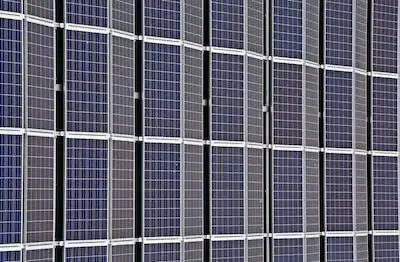Financial Considerations:
High upfront cost: The initial investment for a solar roof can be daunting. While prices have steadily decreased, the cost to purchase and install a system can still run into the tens of thousands of dollars, depending on size, technology, and location. While government incentives and rebates can lighten the load, it's still a significant upfront expense.
Long payback period: While solar panels can generate energy for decades, it can take years, sometimes up to a decade or more, for the energy savings to offset the initial investment. This extended payback period may not be suitable for everyone, especially those with shorter ownership timelines.
Financing complexities: Navigating various financing options like loans, leases, and power purchase agreements can be confusing. Understanding the nuances of each option, such as interest rates, ownership rights, and maintenance responsibility, is crucial for making an informed decision.
Efficiency Constraints:
Weather dependence: Contrary to popular belief, sunshine isn't a constant guarantee. Cloudy skies, rain, and snow can significantly reduce energy production, impacting your expected savings. In regions with less sunlight, the overall efficiency of a solar roof may be lower.
Roof suitability: Not all roofs are created equal. Factors like size, orientation, angle, and existing shade can significantly impact solar panel performance. Shading from nearby trees or chimneys can lead to uneven energy production and efficiency losses. Older or structurally unsound roofs may require repairs or upgrades before supporting the weight and stress of panels.
System maintenance: While solar panels are relatively low-maintenance, they do require occasional cleaning to maintain optimal performance. This can be especially challenging for roofs with difficult access or steep angles. Additionally, inverter replacements may be necessary every decade or so, adding to the long-term expense.
Aesthetic Concerns:
Visual impact: Solar panels can significantly alter the appearance of your home. While sleek, black panels have become more common, the overall look may not be to everyone's taste. Integrating the panels seamlessly into your home's architectural style is crucial for maintaining aesthetic appeal.
Homeowner association limitations: Some homeowners' associations may have restrictions on the installation of solar panels, citing concerns about uniformity or property values. Be sure to check any relevant regulations before making a commitment.
Resale implications: While solar roofs can increase home value in some markets, the perception can vary in others. Potential buyers may have concerns about the cost, maintenance, and aesthetics of the system, impacting the selling price.
Environmental and Ethical Considerations:
Manufacturing and disposal: The production of solar panels involves resource extraction and energy consumption, leading to environmental impacts. Additionally, the disposal of decommissioned panels raises concerns about heavy metal content and e-waste management.
Labor practices: Sourcing materials and components for solar panels often involves global supply chains. Ethical concerns regarding labor practices and environmental exploitation need to be carefully considered.
Land use: In some cases, large-scale solar farms can displace ecosystems and impact biodiversity. Understanding the land-use implications of your energy choices is crucial for making responsible decisions.
Making an Informed Choice:
While the potential drawbacks of solar roofs shouldn't deter you entirely, they serve as a crucial reality check. By understanding the challenges and limitations, you can make a more informed decision about whether solar is the right choice for your specific situation. Carefully evaluating your financial constraints, roof suitability, and energy needs is essential. Researching government incentives, financing options, and reputable installers can further guide your investment. Ultimately, approaching solar roofs with a realistic perspective, weighing the pros and cons, and carefully planning your installation will allow you to harness the power of the sun responsibly and efficiently, reaping the rewards of this clean energy technology without succumbing to its hidden shadows.
Additionally:
Consider exploring alternative solar energy options like solar carports or ground-mounted systems if your roof isn't suitable.
Investigate community solar programs where you can invest in a shared solar installation without installing panels on your roof.
Focus on energy efficiency improvements in your home to reduce your overall energy needs and maximize the effectiveness of your solar system.
Remember, making the right choice involves understanding the full picture. While solar roofs offer a path towards a sustainable future, a comprehensive understanding of the potential drawbacks empowers you to make a responsible and informed decision, paving the way for a truly sun

